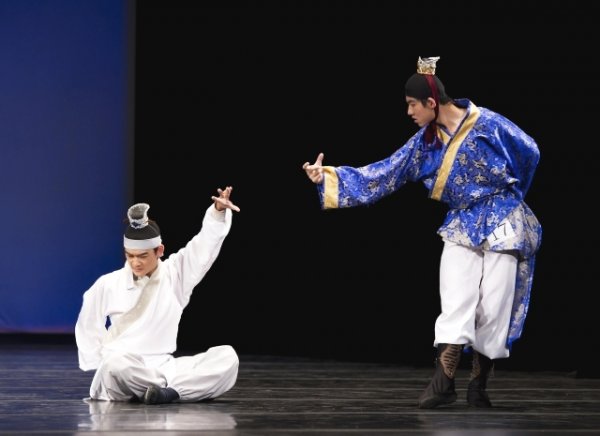Last Sunday, we performed at SUNY Purchase for New Tang Dynasty Television’s fourth International Classical Chinese Dance competition. The competition was part of a series of contests hosted by our media partner NTDTV, and it has become an annual tradition that we perform after the finals. Before our performance, I had the honour of watching the competition’s final rounds.
I was utterly amazed at the technical level of the competitors this year and couldn’t help oohing and ahhing along with the audience as dancers executed impossible moves with grace and ease. The female competitors looked ever so serene as they tendued their legs until they brushed against their heads, while the male competitors bravely launched themselves into 360-degree backflips at daring heights.
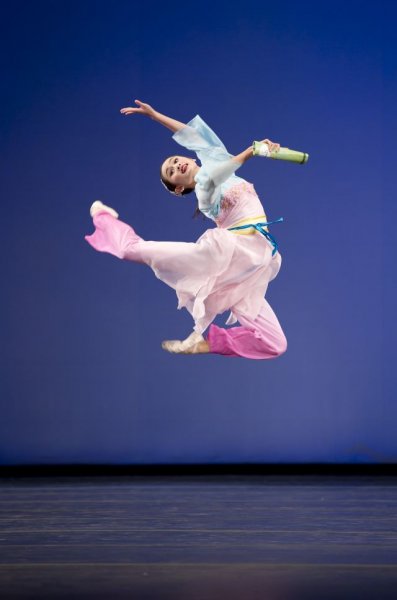 |
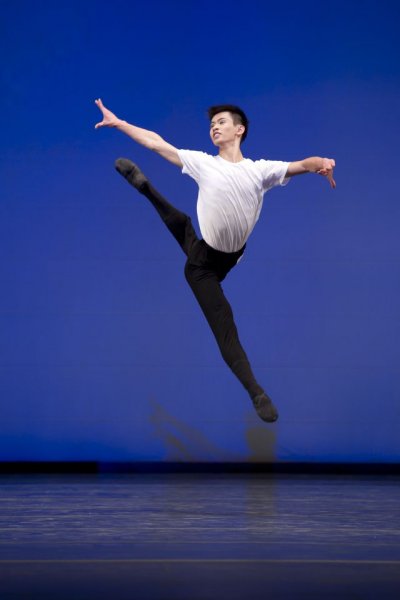 |
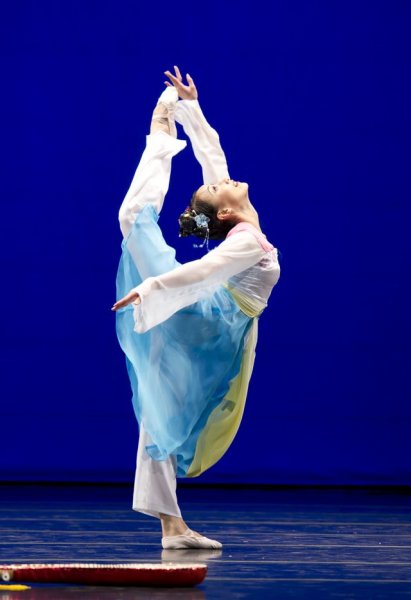 |
| New Tang Dynasty Television’s fourth International Classical Chinese Dance competition | ||
The competition drew participants from all over the world, including from Shen Yun Performing Arts. I would often see them practicing backstage and even at the hotel whenever they had free time. Their dedication to the art is truly admirable, and I was proud to watch their hard work lead to fortuitous results.
What really impressed me this year was the self-selected section of the competition, as it really captured the essence of classical Chinese dance. Working in the context of bearing and form, classical Chinese dance provides performers with a rich vocabulary of expression that offers unique freedom to depict characters and emotions with vivid detail.
Many competitors drew inspiration from China’s divinely inspired culture and its 5,000 years of history. It was as if watching historical characters revived. In the audience, we felt transported to mystical lands and bygone dynasties.
|
|
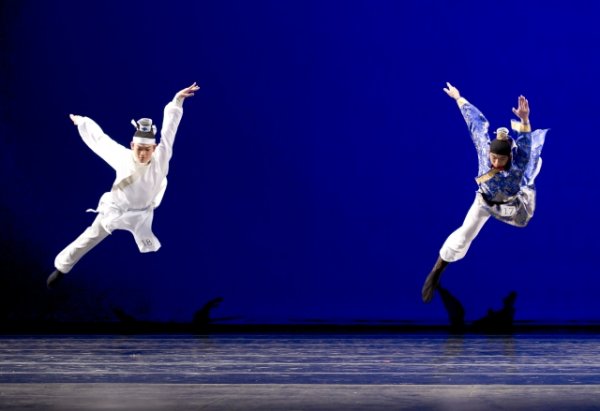 |
| “Seven-Step Poem” by Rick Li and William Li |
For me, the most memorable dance was the “Seven-Step Poem,” performed by Rick Li and William Li (who are not brothers, by the way). It depicted the heart-wrenching struggle between the two sons of the famed statesman Cao Cao (from Romance of the Three Kingdoms). Cao Pi was heir to the throne, but he was jealous of his brother Cao Zhi’s talents. Trying to frame Cao Zhi, Cao Pi summoned his brother to court and ordered him to compose a poem within the time required to take seven strides. Cao Zhi ingeniously responded with this:
Beans are boiled by the fire of beanstalks.
And beans cry in the pot:
“We both came from the same roots,
Why burn me so unrelentingly?"
After hearing the poem, Cao Pi felt ashamed of his hatred towards his brother. Nevertheless, he gave in to his megalomania at the cost of his own brother’s ruin.
I was captivated by the poetry and synchronization of their movements and the subtleties of their expressions. The music supplemented the dance quite fittingly, from a quiet, lugubrious melody to an allegro that accentuated the brothers’ escalating tensions. You could literally feel the internal struggle of the ignominious brother as he wrestled between kinship and power.
After watching the competition, I not only gained a deeper insight into classical Chinese dance but also new knowledge of historical Chinese figures. (Wouldn’t it be great if history class just involved watching dances?)
I heard that the next NTDTV competition will be a Chinese version of the Iron Chef, to be held at Times Square at the end of this month. I wonder if they’ll ever have an emcee competition, where the best of the best will battle it out in improv and polyglot tongue twisters.

Kelly Wen
Contributing writer
September 16, 2010


